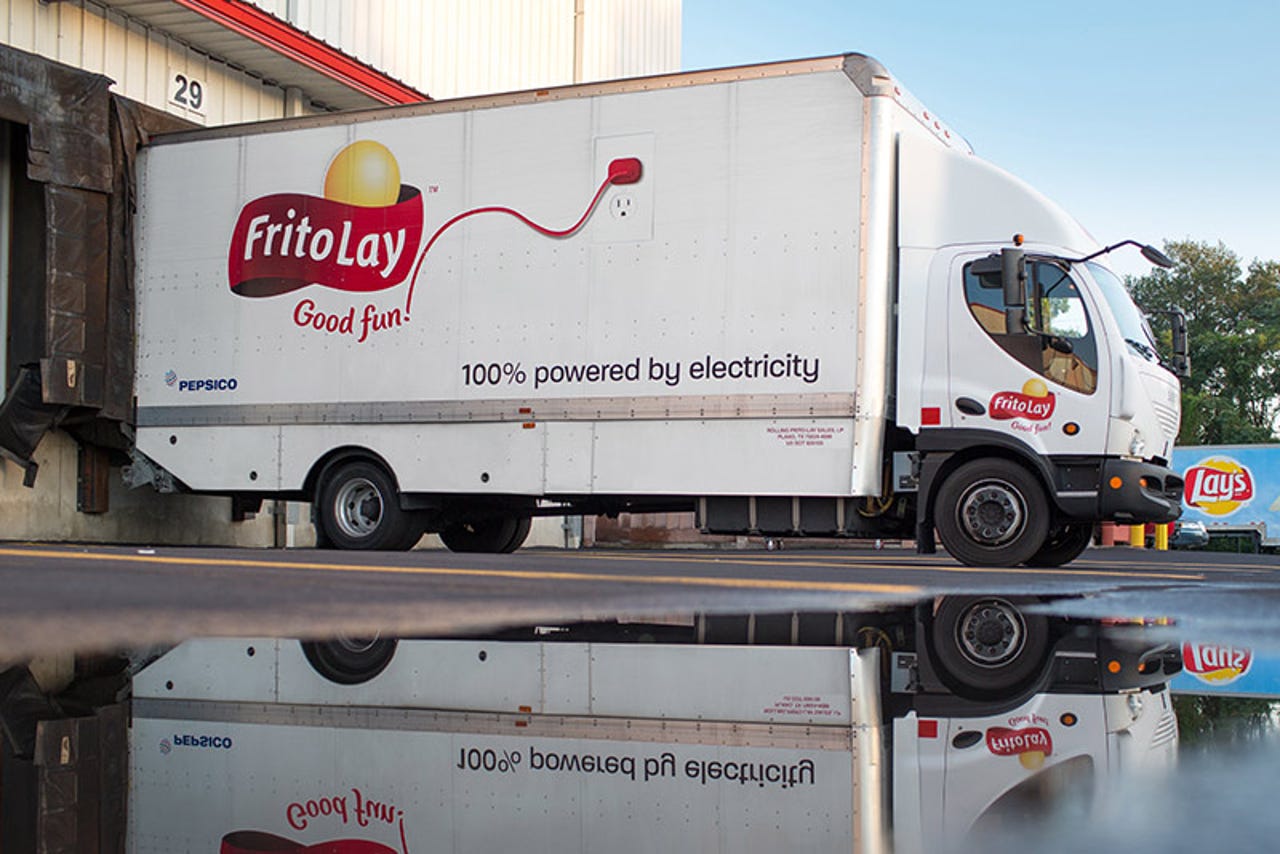Frito Lay ditches diesel, opts for eTransit


Frito-Lay just announced a big shift to an electric fleet. The move to switch to electric in the Dallas Fort Worth area puts the company at pace to achieve a goal of net-zero emissions by 2040 and signals the growing role brands are playing in the push toward an all-electric fleet.
Amazon
Timed to coincide with a bonanza of green-tinged announcements across the corporate spectrum during Earth Day, the subplot here is an encouraging move away from fossil fuels. Prompted by technology and capitalizing on greater consumer awareness of ecology and sustainability issues, brands are beginning to make public moves toward green practices, including updating infrastructure and critical links in supply chains.
Amazon, whose smile graces the sides of last-mile vehicles in every major market in the United States, has been an avid proponent of an all-electric fleet, working with Rivian and Ram, among others. That kind of validation of electric technology, coupled with the success of Tesla, certainly has major automakers taking note.
The vehicles behind the Frito-Lay transition are Ford's eTransit trucks. The auto manufacturer is eager to grow its commercial sector footprint amid a broader trend toward electric. The team behind the eTransit line's development looked at more than 30 million miles of Ford Pro Telematics data to learn that the average daily range from commercial vans in the U.S. is 74 miles. The eTransit, which comes in chassis and van configurations, was designed with a targeted 126 miles of range, making it an ideal vehicle for hub and spoke deliveries in urban and suburban areas like Dallas Fort Worth.
"Frito-Lay recognizes our opportunity to utilize our size and scale to advance technology throughout our supply chain while reducing environmental impacts as we move our products more sustainably with a goal to achieve Net-Zero emissions by 2040," said David Allen, vice president of sustainability, PepsiCo Foods North America. "The implementation of these 40 100% electric, zero-emissions route trucks is one of the many ways we're supporting our local community and committed to improving air quality and reducing Frito-Lay's absolute greenhouse gas emissions in the Dallas Fort Worth area."
Frito-Lay is also making an important ROI decision for all the green spin behind the move to electric. Ford's electric chassis has an estimated 40% less maintenance cost than internal combustion-powered alternatives. With the addition of the trucks to its fleet, Frito-Lay expects a reduction of approximately 390 metric tons of greenhouse gas emissions annually through the implementation of this electrification project. Additionally, Frito-Lay is further decarbonizing its fleet through the nationwide use of Renewable Compressed Natural Gas and other new zero- and near-zero emissions vehicles.
The company has achieved 100% renewable electricity for all of its U.S. plants, offices, and distribution centers. In addition, all Frito-Lay U.S. manufacturing sites use LED lighting with expected GHG emissions savings equivalent to 21,200 metric tons of CO2 annually.